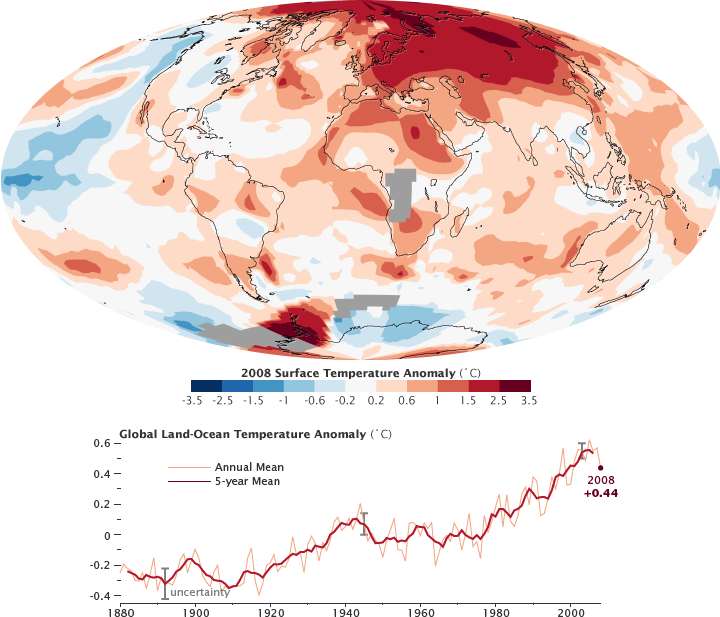Weather v. Climate
What is the difference between weather and climate? Weather is considered short-term variability, while climate is long-term trend based on multiple factors. These factors depend on context. In other words, one persons weather is another persons climate. Generally speaking, in the context of human caused global warming, climate is considered 30+ years of trend with attribution.
Weather is different than climate.
What is climate? Is there a definition of climate? How do you tell the difference between climate and weather?
Generally, in the context of discussing human caused global warming, climate is considered, 30+ years with attribution. In this context, it means the major signals have been separated from the noise allowing scientists to understand the major radiative forcing components that drive climate change on relatively large scales inside the earth climate system. This includes the interactions of our sun and the land and ocean inside our atmosphere.
What is Climate?
The National Academy of Sciences
National Research Council, Board on Atmospheric Science and Climate
From the NAS movie Climate Change: Lines of Evidence:
Weather v. Climate: It depends on the context.
The weather v. climate argument seems to have more than a few people confused. Here we hope to help clarify the differences so that individuals can see the relative context of weather v. climate in a given discussion.
NASA’s Definition
The difference between weather and climate is a measure of time. Weather is what conditions of the atmosphere are over a short period of time, and climate is how the atmosphere “behaves” over relatively long periods of time.
Weather
Weather is generally considered the chaotic short-term variability involving rain, wind, snow, dryness, humidity, temperature and any other related factors. Weather as they say is unpredictable on long time scales. Weather indicates events. Like it rained on Tuesday, or it is sunny today let’s go out.
Due to the chaotic nature of weather, it is hard to predict with great accuracy beyond about two weeks. So in a sense, weather is what happens inside climate.
Climate
Climate is the study of large scale changes based on forcing components in the climate system. Context is always required though. If you are discussing global climate in general the general definition is 30+ years. if you are discussing oceanic cycles and their effect on shorter term climate impacts then the time scales can be years or decades.
Understanding the different contexts:
If a scientist is studying human caused global warming, climate is 30+ years, in general. If a scientist is studying ocean cycles in relation to regional climate shift, then separating the signal form the noise can be done on smaller time scales. Climate in that context can be shorter than 30 years. It may be measured in years or decades.
Regional climate can have its own unique qualifiers. For example, mountain climate in a particular region is different than valley climate. Or desert climate is different than rural climate. Inland climate can be different than coastal climate.
Then there are small scale regional climate zones that may be very particular to a localized region. An area for example might vary in short distances such as the climate on the lake is different than the climate out of town.
Context and causation really does matter. Time scales, global or regional, local in relation to your particular region?
All you really need to know is the context of the conversation. If the context is human caused global warming the time scale is 30+ years. If the context is oceanic cycles and their effects on local climate, the time scale is years or possibly decades. It all depends on context.
Links
- Related content
- Natural Variation

